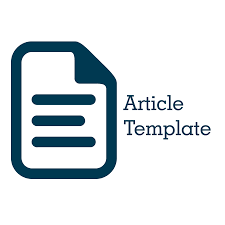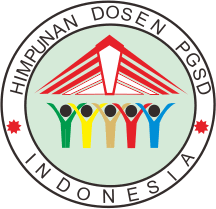Analisis tingkat self regulated learning peserta didik di Sekolah Dasar Indonesia Bangkok
Abstract
Self Regulated Learning (SRL) adalah kemampuan individu untuk secara proaktif mengelola pembelajaran mereka melalui perencanaan, pemantauan, dan evaluasi diri. Penelitian ini bertujuan untuk menganalisis tingkat SRL di Sekolah Dasar Indonesia Bangkok. Metode penelitian yang digunakan adalah survei dengan instrumen kuesioner yang diisi oleh 100 siswa. Hasil penelitian menunjukkan bahwa tingkat SRL siswa berada pada kategori sedang dengan beberapa aspek yang perlu ditingkatkan, seperti manajemen waktu dan strategi belajar. Temuan ini memberikan wawasan penting bagi pengembangan strategi pengajaran yang dapat mendukung peningkatan SRL siswa di sekolah tersebut.
Keywords
Full Text:
PDFReferences
An, F., Xi, L., & Yu, J. (2024). The relationship between technology acceptance and self-regulated learning: the mediation roles of intrinsic motivation and learning engagement. Education and Information Technologies, 29(3), 2605–2623. https://doi.org/10.1007/s10639-023-11959-3 [2]Annisa Nur Asrofah, Nadiya Ruhma, Alfiyatur Rohmaniah, Fatihatul Ulya, Alvina Safitri, H. M. (2021). Journal of Educational Learning and Innovation. Journal Of Educational Learning and Innovation, 1(1), 24–32. https://doi.org/10.46229/elia.v1i1 [3]Anugrah, D., & Novel, P. P. (2022). SELF REGULATED LEARNING , PARENTAL MONITORING DAN. Pedagogy : Jurnal Pendidikan Matematika, 7(2), 189–198. https://www.e-journal.my.id/pedagogy/article/view/2153 [4]Azizah, U., & Nasrudin, H. (2021). Metacognitive Skills and Self-Regulated Learning in Prospective Chemistry Teachers: Role of Metacognitive Skill-Based Teaching Materials. Journal of Turkish Science Education, 18(3), 461–476. https://doi.org/10.36681/tused.2021.84 [5]Bangsawan, I., & Utami, S. (2023). Instilling Self-regulation in Children with Autism ( Case Study in SLBN ( State Special School ) Kuala Tungkal ). Jurnal Ilmiah Pendidikan Anak Usia Dini, 6(1), 15–28. http://ejournal.radenintan.ac.id/index.php/al-athfaal [6]Brenner, C. A. (2024). The role of beliefs in teacher candidates’ development of self-regulated learning promoting practices. Psychology in the Schools, 61(2), 647–656. https://doi.org/10.1002/pits.23074 [7]Chang, D. H., Lin, M. P. C., Hajian, S., & Wang, Q. Q. (2023). Educational Design Principles of Using AI Chatbot That Supports Self-Regulated Learning in Education: Goal Setting, Feedback, and Personalization. Sustainability (Switzerland), 15(17). https://doi.org/10.3390/su151712921 [8]Dignath, C., & Veenman, M. V. J. (2021). The Role of Direct Strategy Instruction and Indirect Activation of Self-Regulated Learning—Evidence from Classroom Observation Studies. Educational Psychology Review, 33(2), 489–533. https://doi.org/10.1007/s10648-020-09534-0 [9]El-adl, A., & Alkharusi, H. (2020). Relationships between Self-Regulated Learning Strategies, Learning Motivation and Mathematics Achievement, Cypriot Journal of Educational Sciences, 2020. Eric - Ej1246489, 15(1), 104–111. https://eric.ed.gov/?q=learning+strategies&id=EJ1246489 [10]Erna Yayuk, Tyas Deviana, N. S. (2019). Kemampuan Guru Dalam Implementasi Pembelajaran dan Penilaian HOTS Pada Siswa Kelas 4 Sekolah Indonesia Bangkok Thailand. Jurnal Inovasi Pembelajaran, 5(2), 107–226. http://ejournal.umm.ac.id/index.php/jinop [11]Fadilah, R. E., Fadri, F., & Nurisya, K. (2023). Analisis Self Regulated Learning Mata Pelajaran IPA pada Siswa Madrasah Tsanawiyah. Jurnal Basicedu, 7(5), 3322–3328. https://jbasic.org/index.php/basicedu [12]Feraco, T., Resnati, D., Fregonese, D., Spoto, A., & Meneghetti, C. (2023). An integrated model of school students’ academic achievement and life satisfaction. Linking soft skills, extracurricular activities, self-regulated learning, motivation, and emotions. European Journal of Psychology of Education, 38(1), 109–130. https://doi.org/10.1007/s10212-022-00601-4 [13]Intes, A., Xavier, E., & Nitin, M. (2020). Self Regulated Learning : Its Role and Influence in Increasing Student Achievement and Interest in Learning. International Journal Of Educational Narratives, 2(2), 347–357. https://doi.org/https://doi.org/10.55849/ijen.v2i2.1078 [14]Jivet, I., Scheffel, M., Schmitz, M., Robbers, S., Specht, M., & Drachsler, H. (2020). From students with love: An empirical study on learner goals, self-regulated learning and sense-making of learning analytics in higher education. Internet and Higher Education, 47(May), 100758. https://doi.org/10.1016/j.iheduc.2020.100758 [15]Karlen, Y., Hirt, C. N., Jud, J., Rosenthal, A., & Eberli, T. D. (2023). Teachers as learners and agents of self-regulated learning: The importance of different teachers competence aspects for promoting metacognition. Teaching and Teacher Education, 125, 104055. https://doi.org/10.1016/j.tate.2023.104055 [16]Lee, M., Young, S., Eun, J., & Jae, H. (2023). Domain-specific self-regulated learning interventions for elementary school students. Learning and Instruction, 1(2), 2–18. https://doi.org/10.1016/j.learninstruc.2023.101810 [17]Lim, S. L., & Yeo, K. J. (2021). A systematic review of the relationship between motivational constructs and self-regulated learning. International Journal of Evaluation and Research in Education, 10(1), 330–335. https://doi.org/10.11591/IJERE.V10I1.21006 [18]Lubis, M., Tasikmalaya, U. M., Dewi, R. S., Tasikmalaya, U. M., S, D. Y., & Tarbiyah, F. (2022). Analisis kemampuan belajar mahasiswa ditinjau dari self regulated learning. 5, 71–79. [19]Mulyani, R. R., Chandra, Y., & Nita, R. W. (2023). Human : Journal of Community and Public Service Published by HAQI Publishing Service. Human: Journal of Community and Public Service, 2(2), 23–30. [20]Nafi, M., Zaman, U., Hukum, F., & Diponegoro, U. (2024). PENDEKATAN SMART REGULATION SEBAGAI CARA PANDANG BARU DALAM REFORMASI REGULASI DI INDONESIA. Jurnal Rechtsvinding, 13(1), 23–41. [21]Permatasari, E., Wahyudin, & Putro, B. L. (2024). Pengukuran self-regulated learning ( srl ) dengan bantuan media pembelajaran. Digital Transformation Technology (Digitech), 4(1), 42–51. [22]Prasetyo, Y. B., Hadi, S., & Partono, P. (2022). Pengaruh Self Regulated Learning Dan Literasi Informasi Digital Terhadap Prestasi Belajar Mahasiswa Program Pendidikan Teknik Otomotif. Jurnal Teknik Otomotif : Kajian Keilmuan Dan Pengajaran, 4(1), 47. https://doi.org/10.17977/um074v4i12020p47-52 [23]Sonezza Ladyanna. (2022). Tantangan dan Strategi Pemertahanan Bahasa Indonesia pada Siswa Sekolah Dasar Indonesia di Luar Negeri. Indonesian Journal Of Islamic Elementary Education, 2(1), 59–68. http://e-journal.iainpekalongan.ac.id/index.php/ijiee%0ATantangan [24]Sukkamart, A., & Pimdee, P. (2023). Predicting student-teacher self-directed learning using intrinsic and extrinsic factors : a Theory of Planned Behavior adoption. School Of Industrial Education and Technology, 14(9), 1–15. https://doi.org/10.3389/fpsyg.2023.1211594 [25]Sutikno. (2020). KONTRIBUSI SELF REGULATED LEARNING DALAM PEMBELAJARAN. Jurnal Dewantara, 2(2), 188–203. https://www.ptonline.com/articles/how-to-get-better-mfi-results [26]Utari, A., Senen, S. H., & Rasto. (2018). Pengaruh Self Regulated Learning (SRL) terhadap Prestasi Belajar Siswa Pada Mata Pelajaran Ekonomi. SOSIO DIDAKTIKA: Social Science Education Journal, 1(1), 8–14. [27]Xia, Q., Chiu, T. K. F., Chai, C. S., & Xie, K. (2023). The mediating effects of needs satisfaction on the relationships between prior knowledge and self-regulated learning through artificial intelligence chatbot. British Journal of Educational Technology, 54(4), 967–986. https://doi.org/10.1111/bjet.13305
Refbacks
- There are currently no refbacks.


